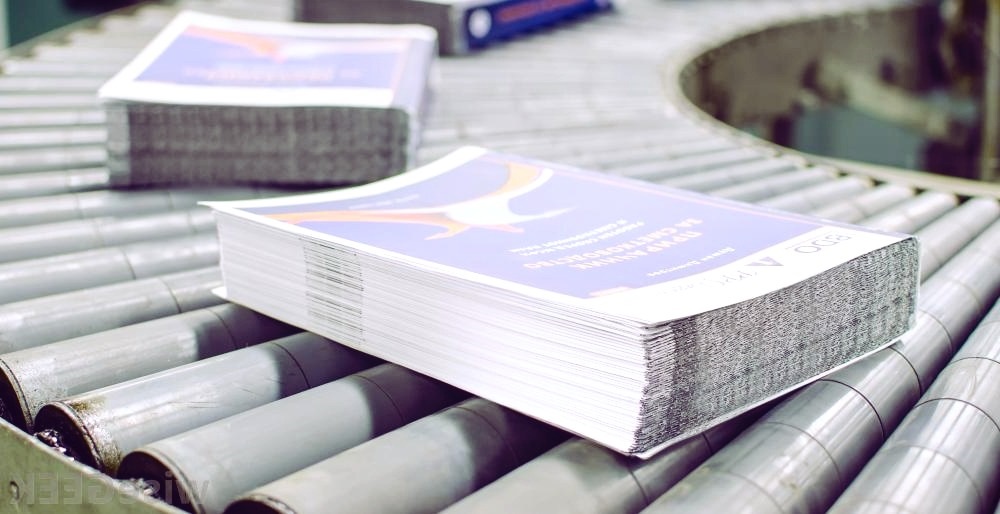
Publishing a book in Nigeria may seem daunting, especially for first-time writers. Between editing, printing, ISBN registration, and promotion, many new authors are unsure where to begin. But with the right knowledge, Nigerian authors can successfully navigate the process and bring their manuscripts to life.
This guide breaks down the essential steps on how to publish a book in Nigeria, drawing from industry insights, cost breakdowns, and practical advice for first-time writers in Nigeria.
Step 1: Finish and Refine Your Manuscript
Before you think about printing or marketing, the most important step is ensuring your manuscript is complete and polished. Nigerian authors should:
-
Write multiple drafts to refine their story.
-
Share their manuscript with beta readers or writing groups for feedback.
-
Consider professional editing early in the process to avoid costly revisions later.
A strong manuscript forms the foundation of your publishing journey.
Step 2: Choose Your Publishing Path
There are three main ways to publish a book in Nigeria:
-
Traditional Publishing – The publisher covers editing, printing, and distribution, while the author may receive royalties. However, it is highly competitive and harder for first-time writers in Nigeria to access.
-
Self-Publishing – The author funds the entire process (editing, printing, ISBN, marketing) but retains full control and higher profit margins.
-
Hybrid Publishing – A mix of both, where the author invests part of the cost but gets professional support from a publisher.
For many first-time writers in Nigeria, self-publishing has become the most popular route, especially with the rise of digital platforms and independent printing options.
Step 3: Budget for the Publishing Process
Publishing in Nigeria comes with real costs. According to Black Tower Publishers, producing a 50,000-word novel can cost between ₦1.3 million and ₦2 million, depending on quality and marketing.
Here’s a cost breakdown:
-
Editing: ₦2 – ₦5 per word (₦100,000 – ₦250,000 for 50,000 words).
-
Cover Design: ₦5,000 – ₦10,000+.
-
Formatting: ₦13,000 – ₦60,000.
-
ISBN Registration: ₦3,500 per title.
-
Printing: ₦1.2 million – ₦1.5 million for 500 copies (cream paper, A5 size).
-
Marketing & Promotion: ₦50,000 – ₦200,000.
Knowing these costs helps Nigerian authors plan ahead, avoiding unexpected expenses.
Step 4: Edit and Proofread Professionally
Editing is non-negotiable. Even the best storytellers need professional editors to refine grammar, structure, pacing, and consistency. There are three levels of editing:
-
Developmental Editing – Focuses on story flow, character development, and overall structure.
-
Copyediting – Corrects grammar, spelling, punctuation, and sentence clarity.
-
Proofreading – Final polish before printing.
Skipping this step risks publishing a book full of errors, which can harm your reputation as a new author.
Step 5: Design and Format Your Book
Your book’s appearance matters. For cover design, hire a professional who understands Nigerian book market trends. A well-designed cover makes your book stand out in bookstores and online platforms.
Formatting ensures the text is clean, easy to read, and suitable for both print and e-book versions. Nigerian authors should pay attention to font size, spacing, and chapter organization.
Step 6: Register for an ISBN in Nigeria
An ISBN (International Standard Book Number) is essential for publishing. It gives your book a unique identity and makes it easier to sell in stores or online.
In Nigeria, ISBNs are issued by the National Library of Nigeria. The process requires:
-
Application letter on company letterhead.
-
Corporate Affairs Commission (CAC) registration.
-
Copy of your manuscript.
-
Completed application form.
The fee is ₦3,500 per ISBN. Without an ISBN, your book cannot be formally recognized in the Nigerian book market.
Step 7: Print Your Book
Printing is one of the most expensive parts of publishing in Nigeria. Most authors print in bulk (e.g., 500–1,000 copies) to reduce cost per unit.
Factors that affect printing costs include:
-
Paper type (cream paper is common for novels).
-
Book size (A5 is standard).
-
Number of copies.
-
Use of color vs. black-and-white printing.
For first-time writers, it’s advisable to start small and test the market before investing heavily in large print runs.
Step 8: Distribute Your Book
Distribution in Nigeria can be challenging due to logistics and limited reach of bookstores. Options include:
-
Bookstores: Partner with local shops in Lagos, Abuja, Port Harcourt, and university towns.
-
Churches, Schools & Events: Especially useful for motivational or religious books.
-
Online Platforms: Jumia, Enufbooks, Amazon Kindle, and your personal website.
Black Tower Publishers also support Nigerian authors by offering structured distribution channels, helping books reach a wider audience.
Step 9: Market and Promote Your Book
Writing a great book is only half the journey—marketing ensures it finds readers. Nigerian authors should invest in:
-
Social Media Marketing: Use Facebook, Instagram, TikTok (BookTok), and Twitter to engage readers.
-
Book Launch Events: Virtual or physical events create buzz.
-
Blog Features & Reviews: Reach out to literary bloggers and influencers.
-
Paid Ads: Targeted ads on social media platforms.
-
Community Engagement: Join writers’ groups, book clubs, and literary festivals.
Word of mouth remains powerful, so encourage readers to share reviews and recommendations.
Step 10: Explore Digital Publishing Options
Beyond print, digital platforms make it easier to reach global readers. Platforms like Amazon Kindle Direct Publishing (KDP) and Smashwords allow Nigerian authors to publish e-books and paperbacks without heavy upfront costs.
Enufbooks, a Nigerian e-book platform, provides a local solution where first-time writers in Nigeria can publish and sell directly to mobile users.
Digital publishing eliminates printing expenses and expands your audience beyond Nigeria’s borders.
Common Mistakes First-Time Writers in Nigeria Should Avoid
-
Skipping editing to save costs – Poorly edited books struggle in the market.
-
Overprinting – Printing too many copies without marketing leads to unsold stock.
-
Neglecting ISBN registration – Limits distribution and credibility.
-
Ignoring marketing – Even great books won’t sell without promotion.
-
Not building an author brand – Readers connect with authors as much as with books.
Final Thoughts
For first-time writers in Nigeria, publishing a book requires patience, planning, and investment. From manuscript development to editing, ISBN registration, printing, and marketing, each step plays a vital role in turning your dream into reality.
While the costs may seem high, Nigerian authors now have more options than ever before. Whether through self-publishing, hybrid models, or support from publishers like Black Tower Publishers, opportunities exist to amplify Nigerian voices both locally and globally.
Publishing a book in Nigeria is not just about producing a manuscript—it’s about shaping culture, preserving stories, and inspiring future generations.

